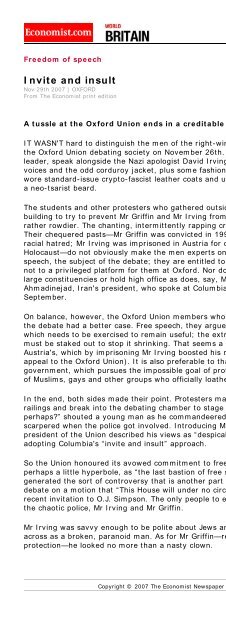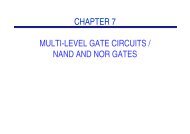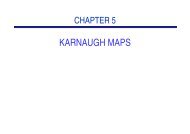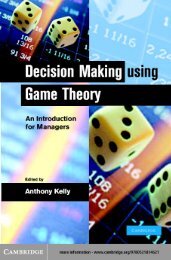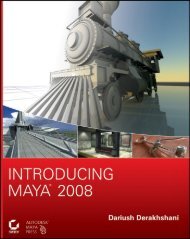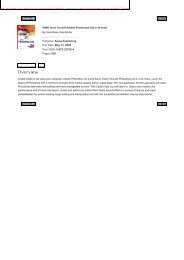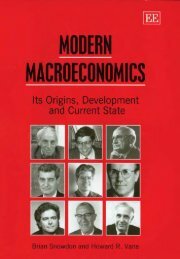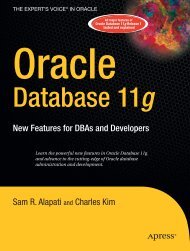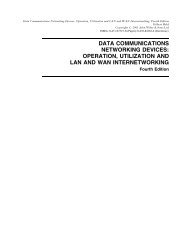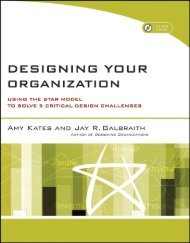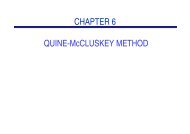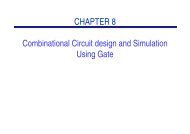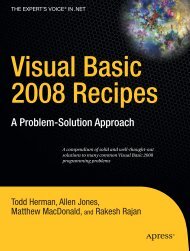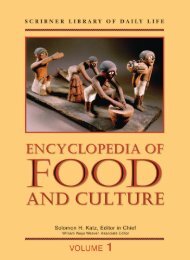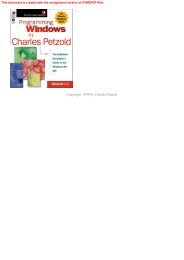The Economist December 1st 2007 - Online Public Access Catalog
The Economist December 1st 2007 - Online Public Access Catalog
The Economist December 1st 2007 - Online Public Access Catalog
- No tags were found...
Create successful ePaper yourself
Turn your PDF publications into a flip-book with our unique Google optimized e-Paper software.
Freedom of speechInvite and insultNov 29th <strong>2007</strong> | OXFORDFrom <strong>The</strong> <strong>Economist</strong> print editionA tussle at the Oxford Union ends in a creditable drawIT WASN'T hard to distinguish the men of the right-wing British National Party (BNP) from the members ofthe Oxford Union debating society on November 26th. <strong>The</strong> students who came to hear Nick Griffin, the BNP'sleader, speak alongside the Nazi apologist David Irving were mostly fey public-schoolboy types with plummyvoices and the odd corduroy jacket, plus some fashionable young women. <strong>The</strong> BNP goons, for their part,wore standard-issue crypto-fascist leather coats and unnecessary black ski hats, except for one who sporteda neo-tsarist beard.<strong>The</strong> students and other protesters who gathered outside the Oxford Unionbuilding to try to prevent Mr Griffin and Mr Irving from speaking wererather rowdier. <strong>The</strong> chanting, intermittently rapping crowd had a case.<strong>The</strong>ir chequered pasts—Mr Griffin was convicted in 1998 of incitement toracial hatred; Mr Irving was imprisoned in Austria for denying theHolocaust—do not obviously make the men experts on the limits of freespeech, the subject of the debate; they are entitled to their opinions, butnot to a privileged platform for them at Oxford. Nor do they representlarge constituencies or hold high office as does, say, MahmoudAhmadinejad, Iran's president, who spoke at Columbia University inSeptember.AFPOn balance, however, the Oxford Union members who had voted to stagethe debate had a better case. Free speech, they argued, is like a musclewhich needs to be exercised to remain useful; the extremes of its terrainmust be staked out to stop it shrinking. That seems a better attitude thanAustria's, which by imprisoning Mr Irving boosted his notoriety (and hisappeal to the Oxford Union). It is also preferable to that of the Britishgovernment, which pursues the impossible goal of protecting the feelingsof Muslims, gays and other groups who officially loathe each other.In the end, both sides made their point. Protesters managed to climb therailings and break into the debating chamber to stage a sit-in. (“Wagner,perhaps?” shouted a young man as he commandeered a piano.) <strong>The</strong>yscarpered when the police got involved. Introducing Mr Irving, thepresident of the Union described his views as “despicable and abhorrent”,adopting Columbia's “invite and insult” approach.Rumble at the UnionSo the Union honoured its avowed commitment to free speech (Harold Macmillan once described it, withperhaps a little hyperbole, as “the last bastion of free speech in the Western world”). It also, of course,generated the sort of controversy that is another part of its historic mission—witness the infamous 1933debate on a motion that “This House will under no circumstances fight for King and Country”, and a morerecent invitation to O.J. Simpson. <strong>The</strong> only people to emerge with little or no credit from the occasion werethe chaotic police, Mr Irving and Mr Griffin.Mr Irving was savvy enough to be polite about Jews and ingratiatingly grateful to his hosts, but he cameacross as a broken, paranoid man. As for Mr Griffin—regurgitating bile, flanked by his beefy bodyguards forprotection—he looked no more than a nasty clown.Copyright © <strong>2007</strong> <strong>The</strong> <strong>Economist</strong> Newspaper and <strong>The</strong> <strong>Economist</strong> Group. All rights reserved.


